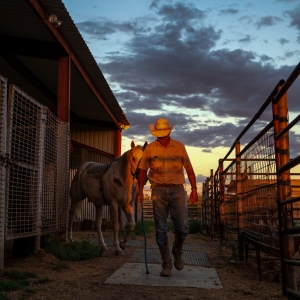The Stream, December 15, 2020: The U.S. Launches New Project To Monitor Mekong River Levels
GLOBAL DAILY WATER NEWS
- The United States will monitor water levels along the Mekong river.
- Rising water levels in Africa’s Rift Valley threatens regional wildlife.
- Millions in Honduras are affected by hurricanes Eta and Iota.
- The U.S. Forest Service attempts to speed up the approval process for a controversial mine in Arizona.
Officials are unsure what thousands of water lines throughout Calgary, Canada are made out of.
“I believe that the ethical approach is to assume that the unknown pipes are lead until proven otherwise.” – Marc Edwards, a Virginia Tech engineering professor who helped expose the Flint water crisis. Officials do not know the material for thousands of city-owned drinking water lines throughout Calgary in Alberta, Canada. The Calgary Journal reports that the city has maintained that only 550 homes have lead services lines after a recent investigation found elevated lead levels in some residents drinking water, but did not reveal to residents the number of water lines classified as “unknown.” Now, the city said they will make a new effort in 2021 to understand unknown materials for public water lines in homes built before 1950, if delays due to Covid-19 do not occur.
IN RECENT WATER NEWS
Colorado River Indian Tribes Take Another Step Toward Marketing Value Water in Arizona
The water rights held by the Colorado River Indian Tribes are a valuable asset, and tribal leadership is seeking congressional approval to cash in on them — for the benefit of the tribes and the state’s high-growth cities and maybe the environment.
The tribes — known as CRIT for short — have lands that stretch along 56 miles of the lower Colorado River. Eighty-five percent of the reservation is in Arizona, with the remainder in California. The tribes’ right to divert 662,402 acre-feet from the river for use on land in Arizona is more than twice the Colorado River water that is allocated to the state of Nevada.
In Case You Missed It:
HotSpots H2O: Wetland Restoration in India Aims to Prevent Human-Animal Conflict – In Assam, a state in northeastern India, authorities at Kaziranga National Park are restoring six wetlands and collecting rainwater to prevent human-animal conflict during the water-scarce winter months.
What’s Up With Water – December 14, 2020 – This week’s episode covers a milestone in Flint, Michigan, the city of Detroit, Michigan’s announcement that it will extend a moratorium on water shutoffs and new documents in Australia that show a plan to convert three open-cut coal mines into “pit lakes” would harm the Latrobe River system.
Rising Levels In Rift Valley Threaten Kenya’s Wildlife
Rising water levels in east Africa’s Rift Valley lakes are threatening surrounding communities and wildlife. The Guardian reports that in Kenya, experts have warned that the merger of the freshwater Lake Baringo and alkaline Lake Bogoria could result in an ecological disaster. Wildlife authorities have already begun relocating several animals to a conservancy on the mainland, worried about the loss of biodiversity in Lake Baringo. A final report from a government-issued committee on the cause of the rising waters is due to be released in the coming days, although experts told The Guardian that human activity along the river is a major contributor.
TODAY’S TOP WATER STORIES, TOLD IN NUMBERS
4 MILLION PEOPLE
The impact of hurricanes Eta and Iota lingers over a month after the storms tore through parts of Honduras, Guatemala and Nicaragua. In Honduras, nearly 4 million people have been affected by the hurricanes and 94 have died. Analysts have said that the storms could cause poverty levels to rise by 10 percent throughout the country, though a new report from Amnesty International said that many residents say they feel abandoned by their government in this time of need. Along with displacement and death, many are experiencing mental health issues like post-traumatic stress in the wake of the storm. This is especially true among marginalized communities, including indigenous people, people with disabilities and LGBT people.
60 DAYS
The U.S. Forest Service has moved the date for the release of an environmental impact statement for the controversial Resolution Copper mine in Arizona to Dec. 31, which would start a 60-day clock on a land exchange that would allow the mine to move forward. The Arizona Republic reports that opponents to the project suspect the mine’s owners have pressured the federal agency to issue the approval before Joe Biden takes office in January. Environmentalists have argued against the proposed mine for years, citing its potential to destroy sacred Native American sites and harm groundwater supplies.
ON THE RADAR
The United States announced a project that will monitor water levels at dams along the Mekong river, Reuters reports. China has been dismissive of U.S. research along the river in the past, which found that Chinese dams retained water along the Mekong in 2019 while several other countries the river passes through suffered from severe drought. Data collected from this new project will be publicly available in real time, using data from satellites to track levels at dams in China and other Mekong countries.
Jane is a Communications Associate for Circle of Blue. She writes The Stream and has covered domestic and international water issues for Circle of Blue. She is a recent graduate of Grand Valley State University, where she studied Multimedia Journalism and Women, Gender and Sexuality Studies. During her time at Grand Valley, she was the host of the Community Service Learning Center podcast Be the Change. Currently based in Grand Rapids, Michigan, Jane enjoys listening to music, reading and spending time outdoors.







Leave a Reply
Want to join the discussion?Feel free to contribute!